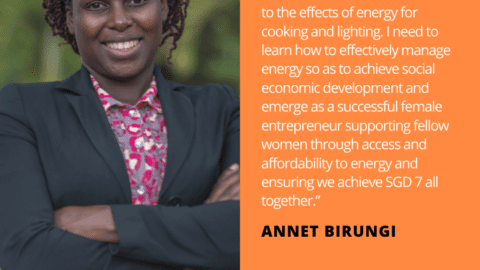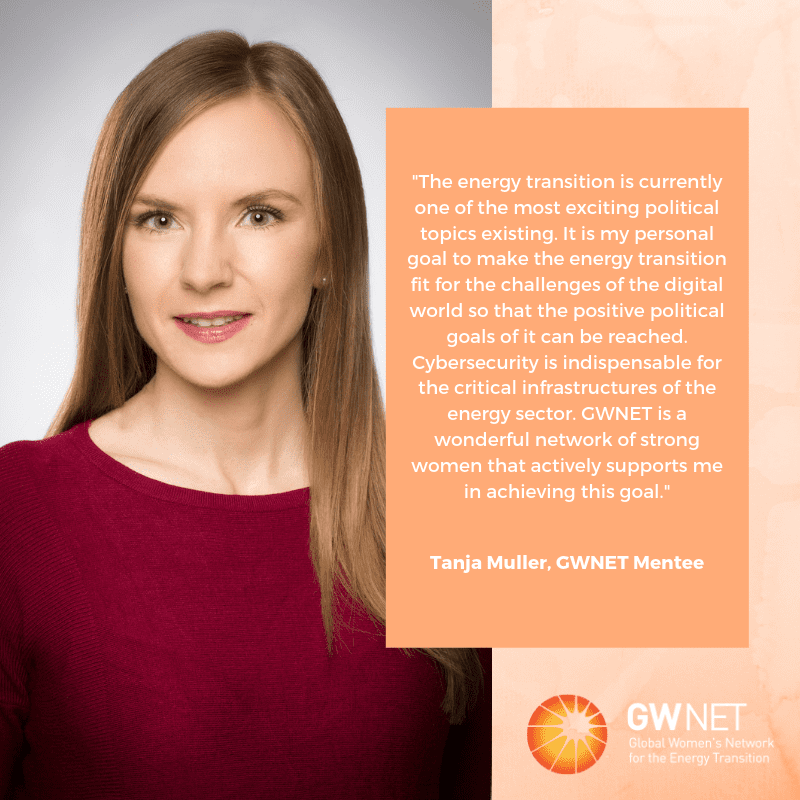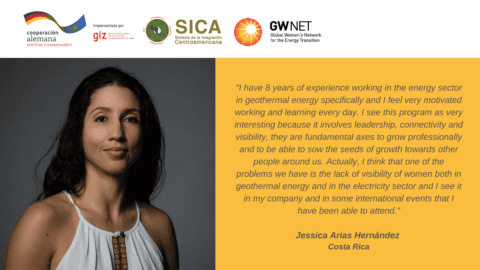The Women in Energy Storage Mentoring Programme sat down with Reem Irany, one of this year’s participants, to chat about her journey in renewable energy and the challenges and opportunities for women in the energy storage sector.
1) Tell us a little about yourself. What do you love most about what you do?
I’ve always wanted my work to have a direct and sizable impact on a national scale and contribute to sustainable development. Through my work at the Lebanese Center for Energy Conservation (LCEC), being a national point of reference in all matters related to renewable energy and energy efficiency in Lebanon, I contribute to shifting the energy system towards a decarbonized, resilient, and sustainable one. This is the core requirement for Lebanon’s growth and prosperity.
2) What were your goals when you started working in energy storage? Have these evolved?
When I started working on a report about energy storage with the Future Energy Leaders Programme (FEL-100) entitled “Energy Storage Monitor”, I aimed to develop a thorough understanding of energy storage technologies, value streams, and common practices.
Being a member of a leading institution in Lebanon with a major role in developing the green energy market, I am using the knowledge that I learned to effectively participate in setting relevant strategies and contribute to renewable and energy storage implementations.

3) How have you adapted to the challenges caused by the COVID-19 pandemic and what advice would you give someone going through similar challenges?
COVID-19 introduced an unprecedented reliance on digitalization. This quick and sudden shift had an impact on my daily activities. Such situations required a bit of patience, in the beginning, to absorb the changes, think, and act. A re-evaluation of work plans was done in close coordination with teams and partners.
Yes, having the right mindset and staying active in a creative way are the key ingredients. As such, we could readapt to any emergent situation and turn the challenges into opportunities.
4) What are the opportunities for energy storage growth in your country?
Lebanon has set a target to reach 30% renewable energy by 2030. With an increasing thrust towards renewable integration and the intermittent nature of solar and wind power, energy storage has the potential to increase the flexibility and reliability of energy systems.
Back in 2018, the Ministry of Energy and Water in Lebanon launched an Expression of Interest to participate in proposal submissions of PV farms with energy storage. In addition, different large scale renewable energy projects are in the pipeline. As a result, renewable installations when paired with energy storage are expected to continue well into the future and represent a key component in enabling a more secure and sustainable energy transition in Lebanon.
5) What challenges have you faced in the sector? Can you tell us how you overcame (or are overcoming) this challenge(s)?
It was challenging yet motivating to lead on solar photovoltaic installations in a male-dominated industry. Embracing this reality and learning from what other people can bring to the industry has always been a great opportunity to push myself forward, to prove my capabilities, and to end up with successful project deliveries.
6) Why did you join the Women in Energy Storage Mentorship Programme? What do you hope to achieve?
The Women in Storage Mentoring Programme provides a great and unique pathway to young professionals working in the energy sector. It increases women’s innovative and effective participation in energy storage by connecting them to industry leaders and spheres of influence, increasing access to data, and engaging them in multifaceted events and discussions.
The programme will effectively contribute to achieving a successful and inclusive energy transition.
7) What advice would you give to women hoping to join the energy storage sector?
There is no doubt that gender diversity in any activity increases creativity, innovation, and engagement. COVID-19 has caused a multifaceted impact on the energy sector and joint efforts at different levels are needed to encourage a green recovery.
Now is a critical and transformative time that needs women to jump in and support this transition, by offering a unique level of dynamism, multitasking, and inspiration.
Read more about GWNET’s mentoring programmes here.











